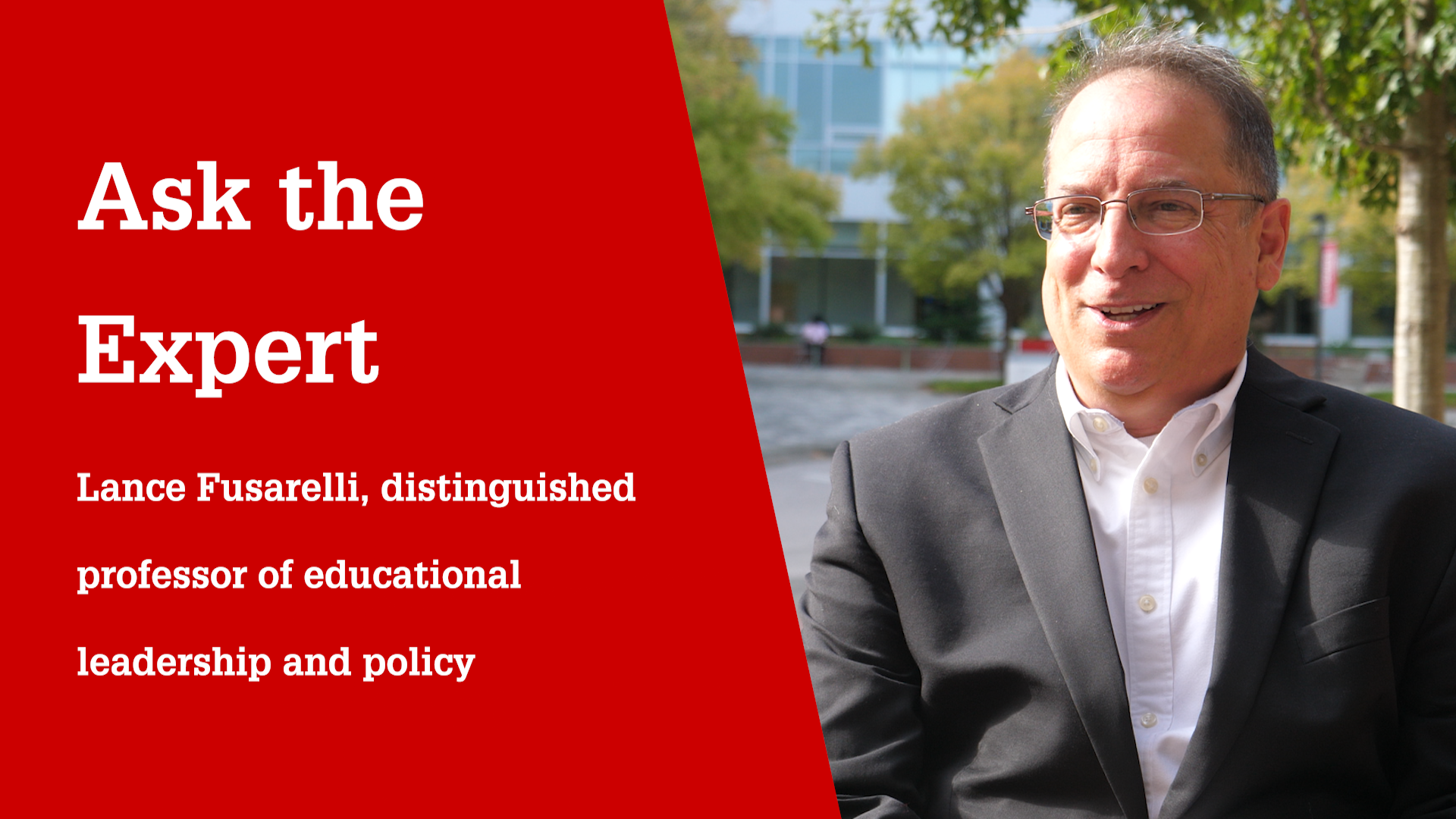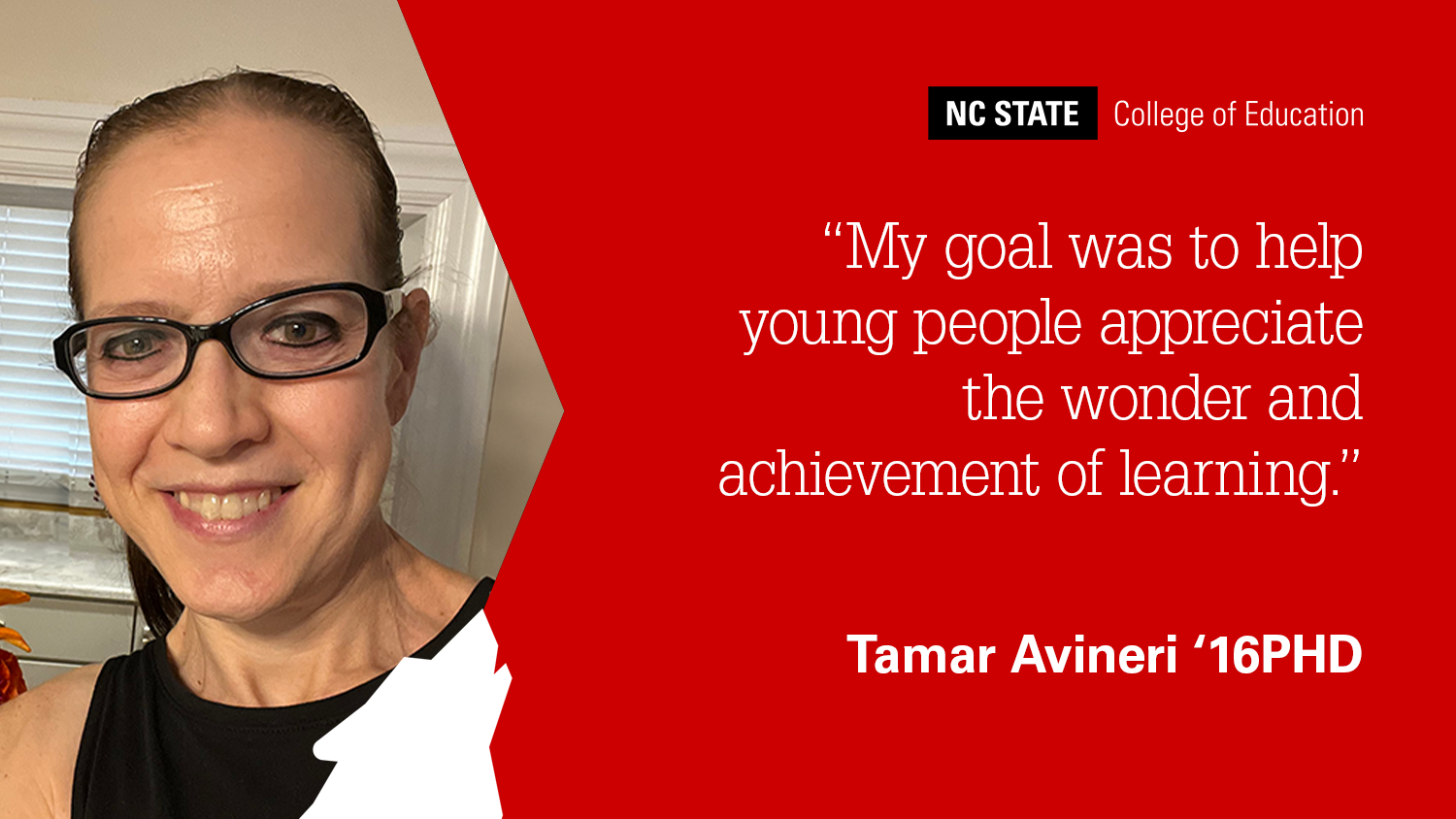How Can School Principals Provide Effective Leadership During Difficult Times? By Practicing the ‘Three C’s,’ Says Professor Lance Fusarelli
This is part of the monthly “Ask the Expert” series in which NC State College of Education faculty answer some of the most commonly asked questions about education.
NC State College of Education Professor Lance Fusarelli likens school principals to captains of a ship: responsible for everything that occurs under their watch. This responsibility comes with unique challenges that have been exacerbated by issues like the ongoing COVID-19 pandemic.
For several years, Fusarelli has asked students in their final semester of the college’s award-winning Master of School Administration program to imagine the worst-case scenario they might experience as a first-time principal and develop a plan to deal with it. None of his students ever anticipated a situation where the schools might close down and require students to learn from home, then try to reopen during a pandemic.
As schools reopen with precautions in place, Fusarelli said principals are facing even more unexpected hurdles.
“The pandemic has only exacerbated problems like staffing shortages and transportation shortages. Our principals are having to deliver lunches in classrooms, which they’ve never had to do before. They’ve become COVID contact tracers and mask enforcers. They’re also having to deal with a public that can be hostile to mask mandates and mandatory vaccines,” Fusarelli said.
Using the ‘Three C’s’ to Provide Effective Leadership
Despite the new challenges they face, Fusarelli — who researches the politics of education and school leadership — said good principals must also continue to provide effective leadership to guide teachers, students, staff and even parents.
To demonstrate effective leadership, Fusarelli recommends that principals practice the “Three C’s:”
Communication: “Principals should be constantly communicating in a variety of venues with parents, with staff and with students. Effective communicators are able to address issues before they become serious problems, so I think that’s essential given the upheaval.”
Consistency: “Teachers and students need to know that policies are being applied fairly and equitably and that there is a routine of stability that principals exercise in a school. That’s really important for staff morale, but it’s also important for student morale because in the last 18 months, students haven’t had a lot of stability.”
Calmness: “Given all the upheaval in students’ lives and teachers’ lives, it’s critically important that principals project an aura of calmness. If they’re calm, then they can put out fires in a way that makes the staff feel like, ‘OK, the principal’s got it. Everything is going to be OK.’ And students will know that school is a safe place for them. It’s one part of their lives where adults have things under control, and I think that’s really important.”
The Importance of Effective Leadership
Having a school principal who can provide effective leadership, especially during times of crisis, is essential, Fusarelli said. Research has shown principals account for approximately 25% of the variance in student performance in a given year, making their impact second only to that of a teacher.
An effective school principal, he said, understands instructional leadership and good instruction, and is able to identify it when they’re hiring teachers as well as provide support for teachers to help them improve their practice.
Effective school principals can affect everybody in the building by establishing a positive school culture. This culture, Fusarelli said, can help reduce teacher turnover, create a sense of family among teachers and students and allows principals to build their own connections with students.
“Kids are smart. Kids know who’s genuine. Principals who are authentic, who are caring, connect with the students and the students connect with them,” he said. “Aside from the impact principals can have on student achievement, the school culture can really positively impact them. That matters for students, particularly now with all of the chaos and all of the stress these kids are under.”
Fusarelli is the co-principal investigator on several grants that have supported the NC State Education Leadership Academies (NELA), one of only five principal preparation programs in the nation to be recognized as exemplary by the University Council for Educational Administration.
Students who earn their Master of School Administration complete a full-time principal residency and work with executive coaches that include former principals, superintendents and state leaders who bring real-life experience into the classroom.
“Our program is nationally recognized because we do some things differently than a lot of traditional programs do,” Fusarelli said. “They have a layered network of support to help them.”
Ninety percent of program graduates have met or exceeded growth expectations in high-need and Title I schools compared to 75% of all principals in North Carolina. Data shows that schools led by NELA principals have also seen increases in student achievement and academic growth and decreases under student disciplinary incidences.
Supporting Effective Principals to Succeed
Just as principals support students and staff in their buildings, Fusarelli said that in order to be most effective, principals also need to know they are supported by their superintendent and district leaders.
Principals need to know that district-wide issues that impact their building, like bus driver shortages, food service problems, mask policy and contact tracing related to COVID, are being promptly addressed by district administrators.
Fusarelli said it is important that principals know district leaders will provide support, back up a principal’s decision when necessary and address systemic problems.
“Principals need to know that the superintendents and the district staff have their back; that they’re not just going to change positions on a whim,” Fusarelli said. “Education is very personal and the politics of education at the local level is intensely personal. Everything that district leaders can do to help principals make that less personal, makes a principal’s job easier.”
- Categories:



